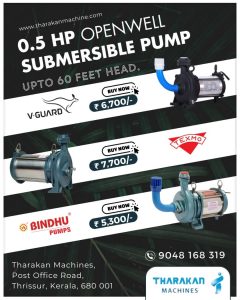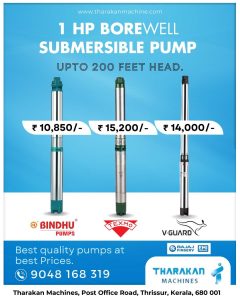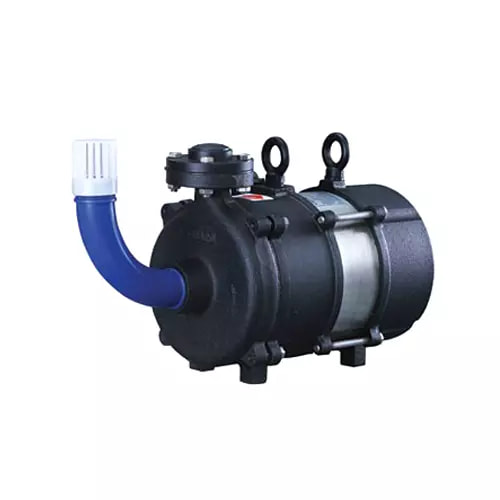Whether you manage water for your house, farm, or business purposes, submersible water pumps are an essential tool. Because these pumps are submerged, they are exceptionally effective and adaptable, which sets them apart from other pumps. We’ll discuss submersible water pumps in this blog, including their definition, operation, advantages, and typical applications.
How Do Submersible Water Pumps Work?
By first transforming rotational energy into kinetic energy and subsequently pressure energy, submersible pumps force water to the surface. This is a detailed explanation of how they operate:
- Submersion: The pump is inserted into the source of water, such as a tank, pond, or well.
- Activation: The pump’s motor turns on when it is turned on.
- Impeller Action: An impeller, a rotor that raises the fluid’s flow and pressure, is turned by the motor.
- Water Movement: Using a pipe or hose, the impeller’s spinning forces water through the pump and up to the surface.
- Advantages of Submersible Water Pump Efficiency: Submersible pumps move water more effectively over long distances and at high altitudes because they push water rather than pull it.
- Silent Operation: Compared to other kinds of pumps, their noise is muffled by being submerged in water.
- Prevents Cavitation: Because the pump is continuously submerged, there is a decreased chance of cavitation, an issue where air bubbles form in the pump.
- Versatility: They are appropriate for a range of applications because they can manage both clean and unclean water.
- Wells: These are commonly used to pump water from subsurface wells. Both residential and agricultural wells can use these pumps to produce a steady supply of water.
- Sewage Systems: Submersible pumps are used to remove sewage and wastewater from homes and buildings and transport them to treatment facilities.


Advantages:
- Drainage: To remove water from flooded areas, such as basements and construction sites, these pumps are required.
- Irrigation: Farmers use submersible pumps to irrigate their fields in order to ensure that crops receive an adequate amount of water.
- Appropriate Setup: Make sure the pump is installed appropriately to prevent problems. Expert assistance may be needed for this, particularly in the case of deep wells or intricate systems.
- Frequent Checks: Look for wear or damage on the pump on a regular basis.
- Clear the Intake: Maintain a clean intake on the pump to avoid obstructions that could lower its efficiency.
- Winter Safety Measures: Take precautions to keep the pump safe from freezing temperatures if you live somewhere colder.
In summary:
For knowing the best submersible pumps in India, tap here. For effective water management in a variety of scenarios, submersible water pumps are a necessary tool. submersible water pumps are very useful for a variety of applications, including sewage control, agricultural irrigation, and residential water supply because of their capacity to function underwater. By choosing the best submersible pump for your requirements and being aware of its advantages, you can guarantee a dependable and effective water supply. A submersible water pump can be the answer you need, whether you want to manage wastewater, irrigate your farms, or keep up a lovely garden pond. For best submersible water pumps or other water pumps do contact us on:9048168319 or click here to order the products. Tharakan machines is one of the best water pumps selling shops in Thrissur do visit.
